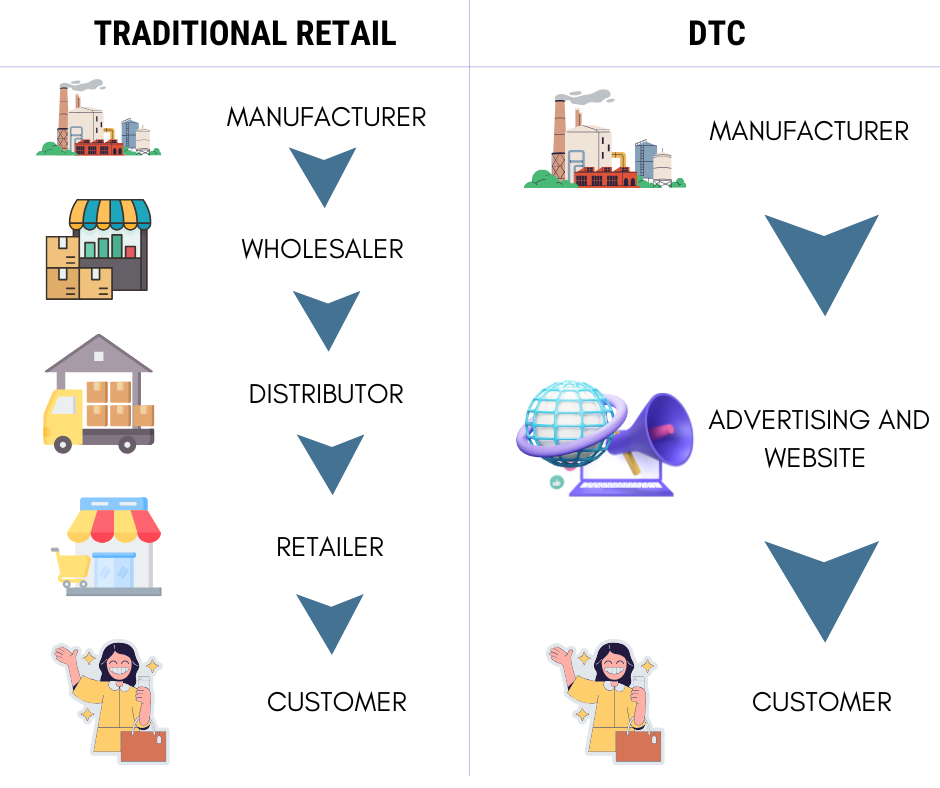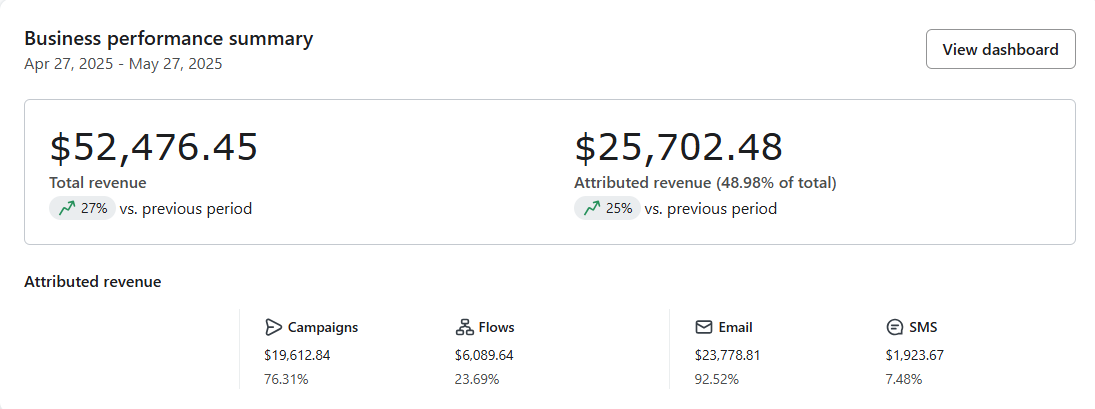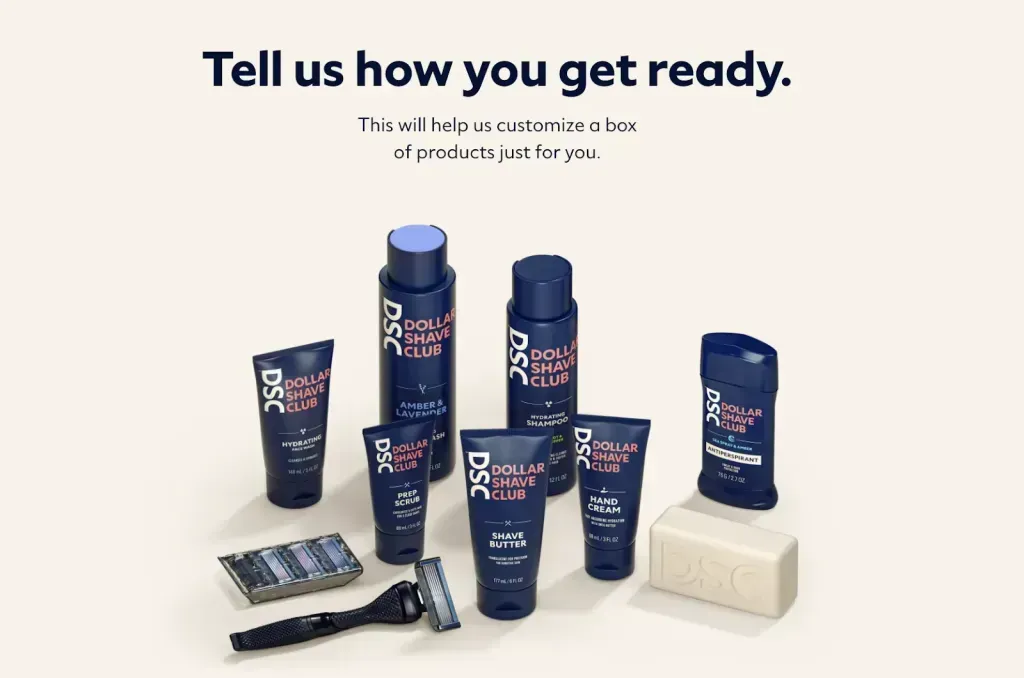The DTC Marketing Playbook: Build Direct, Grow Smart, Own the Relationship

Start With Why: The Power of Going Direct
Great brands don’t just push products. They inspire people. Simon Sinek says, "People don't buy what you do; they buy why you do it." DTC marketing is not about cutting out the middleman to boost profits—it’s about creating a direct, honest connection between your brand and the customer.
Imagine standing face-to-face with your buyer. No noisy shelves. No retailer filters. Just you, your story, and their needs. That’s the essence of DTC marketing.
When you go direct, you gain control. You own the story, the data, and the relationship. That’s powerful. And in today’s crowded market, it’s necessary.
What Is Direct-to-Consumer (DTC) Marketing?
DTC marketing is when a brand sells its products directly to customers, skipping wholesalers, distributors, and retail stores. You reach your audience through your own channels: your website, your email list, your social media. You own it all.
Why is this model thriving?
- It puts the customer at the center.
- It gives brands complete control over pricing, marketing, and fulfillment.
- It allows for personalization and agility that traditional retail can’t match.
Think about brands like Warby Parker, Allbirds, and Glossier. They didn’t just sell products; they built movements. They listened, adapted, and engaged directly with their customers.

Why DTC Marketing Works (When Done Right)
DTC isn’t just a sales model. It’s a philosophy. It’s about building trust, not just transactions. To succeed, you need to understand your customers deeply.
Ask yourself:
- Who are they?
- What do they value?
- What frustrates them about traditional buying experiences?
Answering these questions helps you craft not only better products but a better overall experience. DTC brands that thrive are those that create meaningful, consistent, and personal touchpoints across the customer journey.
The Central Role of Email Marketing in DTC
If DTC is about connection, email is the beating heart of that connection. While social media is flashy, email is personal. It lands directly in the customer’s inbox—a space reserved for friends, family, and trusted brands.

Here’s why email matters:
- Ownership: You’re not at the mercy of an algorithm.
- Personalization: You can tailor content, offers, and recommendations.
- Automation: You can set up flows that nurture leads and drive repeat purchases.
- High ROI: Email remains one of the most cost-effective marketing channels.
Platforms like Klaviyo let DTC brands build sophisticated email programs, from welcome sequences to abandoned cart recovery to post-purchase nurturing. Done well, these programs can drive 20–30% of a brand’s total revenue.
How to Conduct a DTC Marketing Assessment
Before you can improve, you must understand where you stand. A proper assessment helps you identify gaps and opportunities.
Start with your website. Is it easy to navigate? Is it mobile-friendly? Does it tell your story clearly?
Next, look at your data collection. Are you gathering first-party data through email sign-ups, purchase behavior, and on-site activity? If you’re not, you’re leaving insights—and money—on the table.
Finally, audit your marketing efforts. Do you have automated email flows in place? Are you running consistent campaigns? Are you tracking metrics like open rates, click-through rates, conversion rates, and customer lifetime value (LTV)?
A strong DTC brand is one that understands both its strengths and its blind spots.
The Impact of Data Collection on DTC Strategy
Data is the new oil, but only if you know how to use it. In DTC marketing, data helps you:
- Segment your audience.
- Deliver personalized content.
- Improve product recommendations.
- Identify loyal customers and at-risk buyers.
For example, if you know a customer has purchased skincare products twice in the past three months, you can send them a personalized offer on a new product line. Or if a customer abandoned their cart, you can trigger a reminder email.
Data transforms marketing from a megaphone into a conversation. And in a crowded space, conversations win.
Unique DTC Marketing Strategies That Stand Out
Many DTC brands succeed because they zig where others zag. Here are some standout strategies:
- Community Building: Glossier built a cult following by involving customers in product development.

- Subscription Models: Dollar Shave Club turned razors into a monthly experience.

- Limited Drops: Supreme created hype by releasing exclusive products in small quantities.
- Educational Content: Casper runs a sleep-focused blog, positioning itself as a thought leader.

Each of these strategies deepens customer engagement and turns buyers into brand advocates. But remember: no strategy works without clear, consistent communication—and that’s where email shines.
Why Some DTC Brands Are Reducing Influencer Spend
A few years ago, influencers were the golden ticket. But today, things are shifting.
Here’s why:
- Rising Costs: Influencers are charging more, often with diminishing returns.
- Skeptical Audiences: Customers are savvier and can spot paid promotions.
- Owned Channels: Brands realize they get better ROI from email and SMS.
Instead of throwing money at influencers, many DTC brands are reinvesting in their owned audiences. They’re focusing on building robust email lists, improving retention, and creating authentic brand stories.
How DTC Brands Have Changed the Marketing Landscape
DTC brands didn’t just change how we shop—they changed how we market.
They taught us that:
- Owned media matters more than rented media.
- Customer data is a competitive edge.
- Personalization isn’t optional; it’s expected.
- Community beats commodity.
These lessons have rippled across industries, forcing even traditional players to rethink their strategies.
Two Core DTC Marketing Channels
While there are many tools in the DTC toolkit, two stand above the rest:
- Email Marketing: Drives retention, builds loyalty, and generates consistent revenue.
- SMS Marketing: Delivers timely, high-engagement messages directly to the customer’s phone.
Used together, they create a powerful one-two punch: email nurtures; SMS activates.
Moving Beyond the Basics: Practical Tips
To elevate your DTC marketing:
- Focus on lifecycle marketing. Go beyond the first purchase. Think welcome series, post-purchase upsells, re-engagement campaigns.
- Test relentlessly. Subject lines, send times, creative formats—small changes can yield big gains.

- Embrace segmentation. Speak differently to a first-time buyer than to a loyal VIP.
- Prioritize deliverability. A gorgeous email is useless if it lands in spam.
- Measure what matters. Don’t chase vanity metrics; focus on LTV, retention rates, and net promoter scores (NPS).
Remember, great marketing isn’t about doing more; it’s about doing what matters.
Why Purpose-Driven Brands Win
Consumers today want more than products. They want purpose. They want to support brands whose values align with their own.
This doesn’t mean slapping a mission statement on your homepage. It means living your values in every touchpoint: your packaging, your customer service, your marketing, your partnerships.
Bombas, for example, built its entire business around giving back—donating a pair of socks for every pair purchased. Customers don’t just buy socks; they buy into a movement.

Purpose builds emotional connection. Emotional connection builds loyalty. And loyalty builds long-term success.
Final Thoughts: The Road Ahead
DTC marketing isn’t a shortcut to success. It’s a long-term commitment to your customer.
It requires clarity of purpose, consistency of message, and excellence in execution. It demands that you listen more than you talk, serve more than you sell, and deliver more than you promise.
Email marketing plays a central role in this journey—not as a standalone tool, but as part of a holistic, customer-centered strategy.
In the end, the brands that win aren’t the ones with the biggest budgets or the flashiest ads. They’re the ones that build relationships, inspire trust, and stay true to their why.
The road is long. But the rewards are worth it.
Start today.